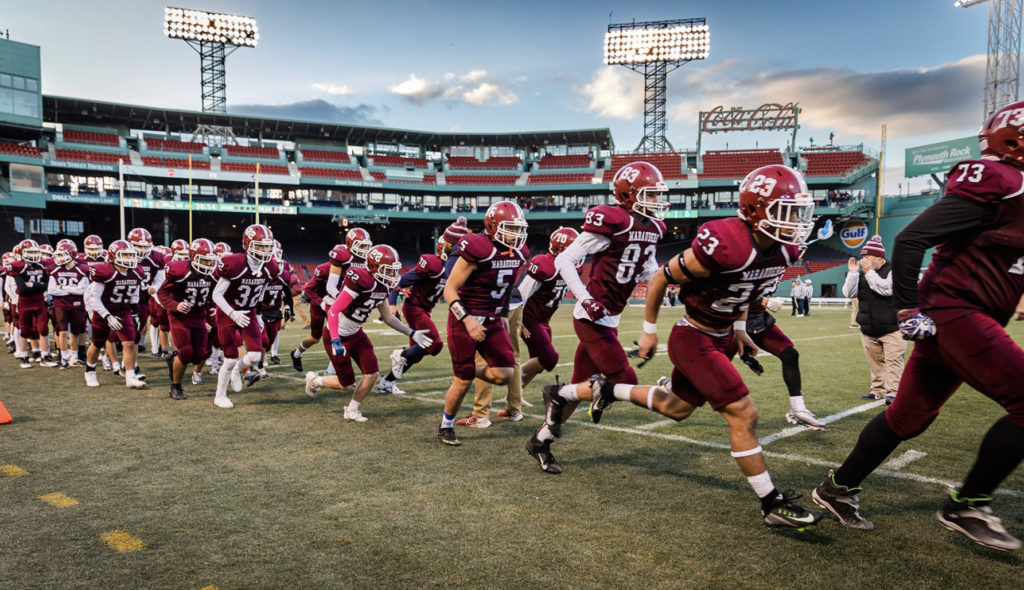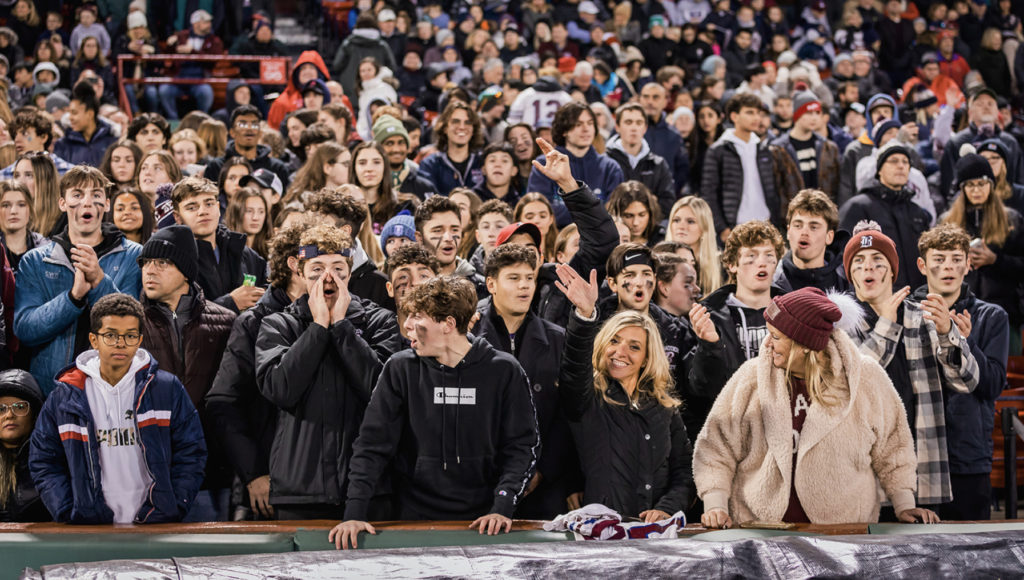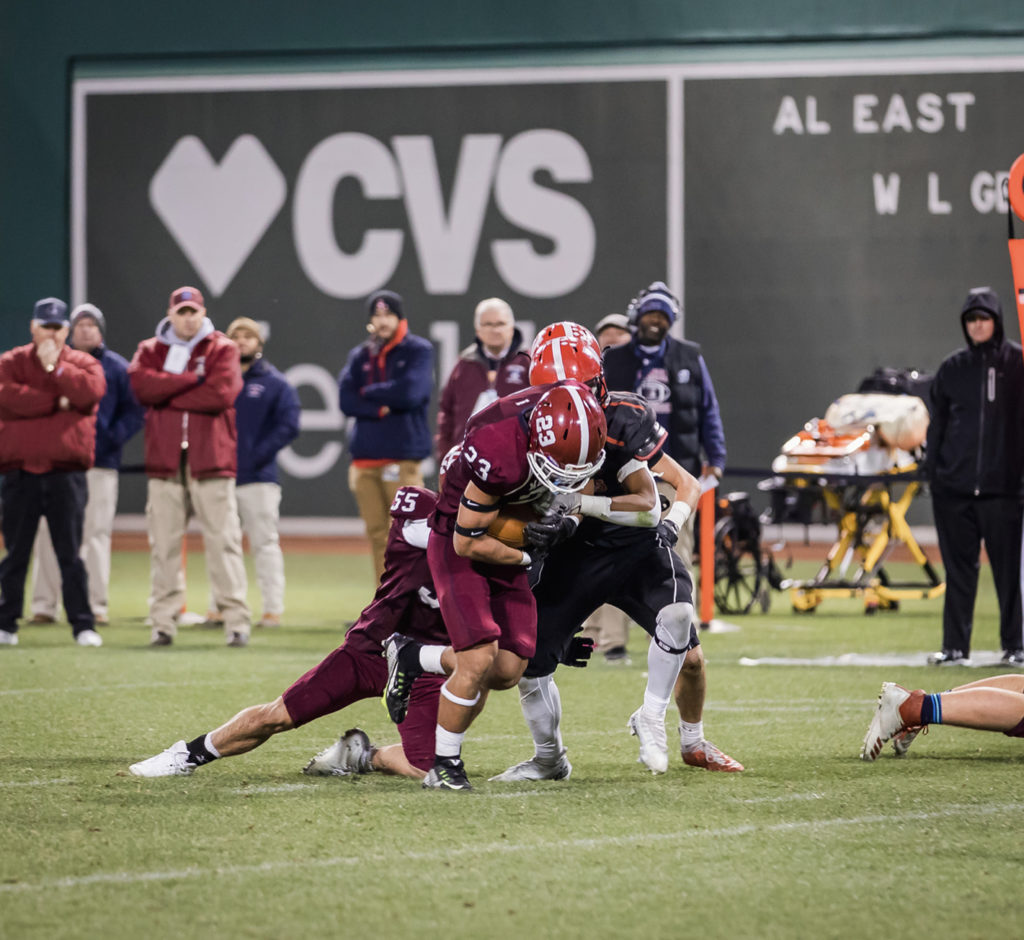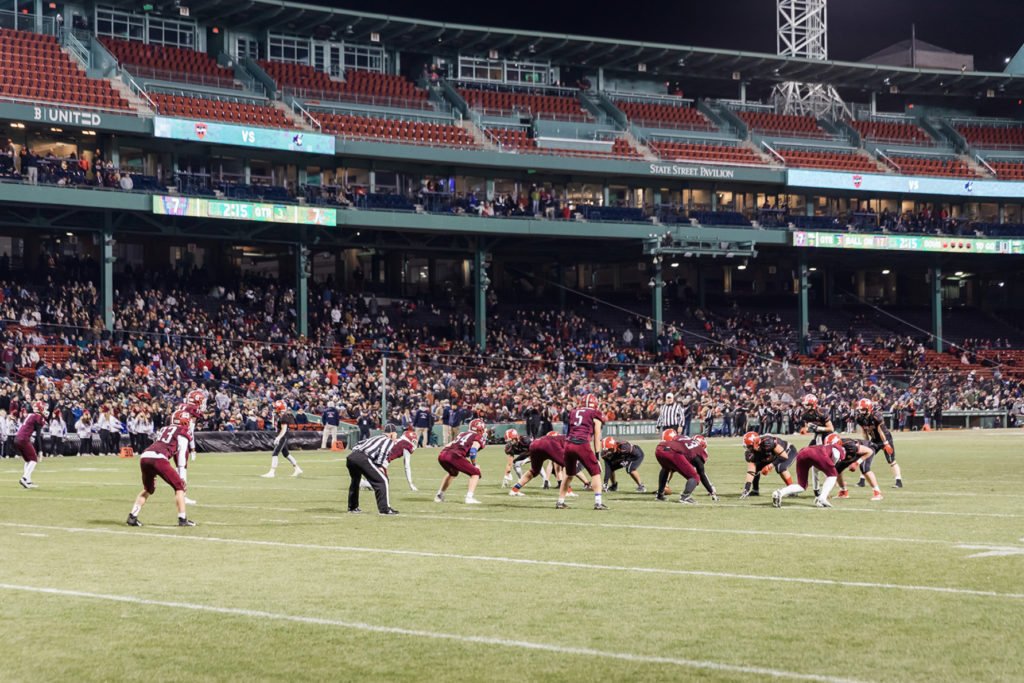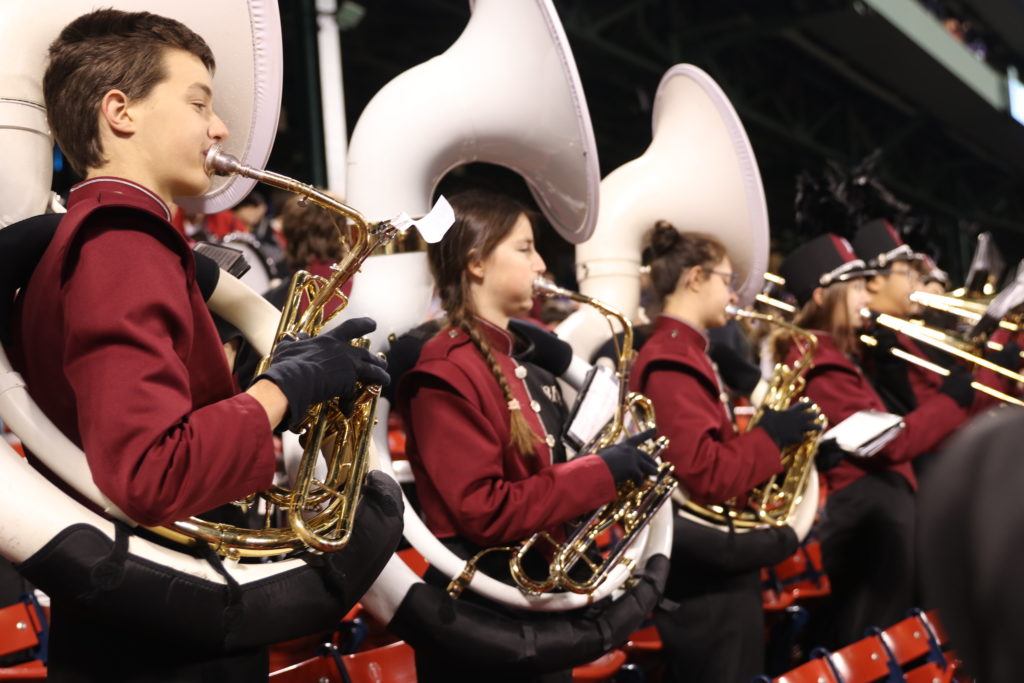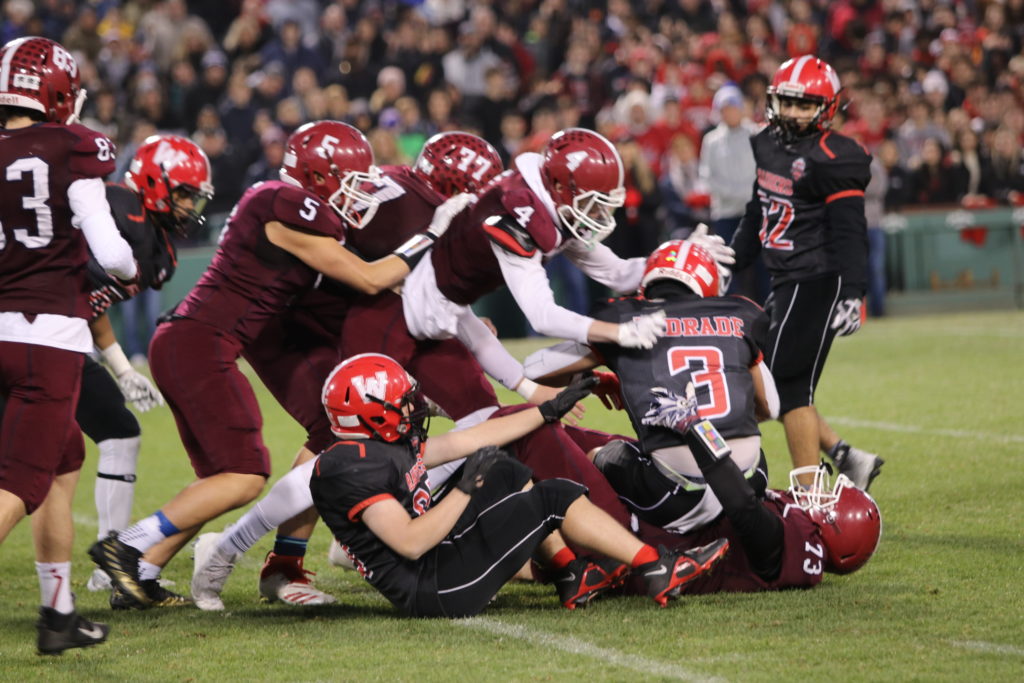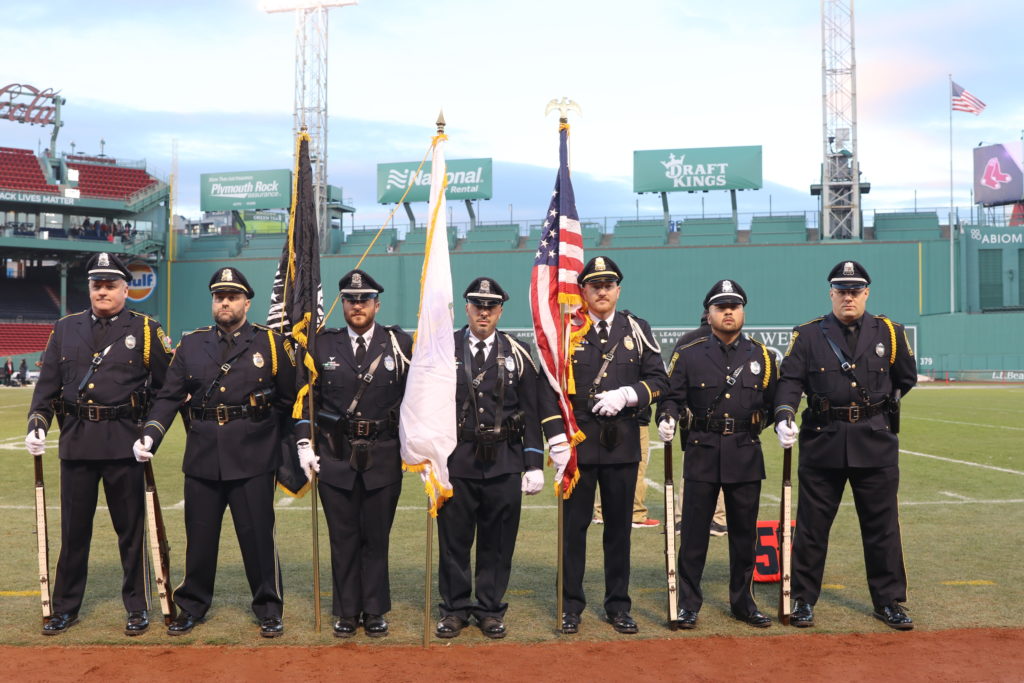Photo A view of the new Belmont Public Library that will open in the fall of 2025
No controversy, no post-11 p.m. debates, and no problems.
In an efficient and timely manner, Belmont’s town legislative representatives approved five articles by a wide margin at the Fall Special Town Meeting held over two nights, November 29-30.
Not that there was any foreseen trouble from articles that included a compromised agreement on the future use of leaf blowers, three “housekeeping” financial items, and the reaffirmation of the will of the voters who passed a debt exclusion to build a new town library.
On night one of ”the special,” the body heard a proposed general bylaw to ban gasoline-powered leaf blowers. The impetus for the new regs came after residents stuck at home during the Covid pandemic began complaining to the Select Board about the noise from multiple blowers used by landscape businesses at all daytime hours, including early weekend mornings.
While initial public meetings and Select Board discussions on a bylaw pitted those residents who wanted to limit the noisy and polluting machines and small landscaping businesses who saw the ordinance hurting their bottom line, and residents who find the blowers are far more efficient than picking up a rack.
A first attempt to bring a proposed bylaw to the annual Town Meeting was scrapped as the June warrant was oversubscribed, and the wording was less than ideal. During the summer, Select Board member Roy Epstein and members of the Warrant and Energy committees brought representatives of both sides – including landscape owner Dante Muzzioli – to hammer out a compromise, allowing landscapers to continue to use the equipment until a certain date.
“If you’ve read the bylaw, you’ll see it has several provisions that seem complicated, but the overall intent is actually quite straightforward,” Epstein told the meeting.
With both sides aligned with the fact that gas-driven blowers “produce wall penetrating noise and pollution that is incredible,” according to the Energy Committee’s Claus Becker, under the bylaw, ”in a few years all the leaf blowers in town will be a lot quieter and won’t be stinking up the neighborhoods.” Becker pointed out that communities across the country have established bans on gas blowers and that California – a trendsetter for the country – is banning the sale of this equipment in the next two years.
The Warrant Committee’s Geoff Lubien detailed the provisions in the new bylaw:
- A ban on gasoline-powered leaf blowers starts in January 2026. The three-year” runway” for the end of gas blowers will correspond with technological improvements to electric-powered blowers, thus building a cushion to give homeowners time to switch. ”We feel this is a reasonable time horizon to give everyone to adjust,” said Lubien.
- The Select Board will appoint an enforcing person. The property owner or property manager – not the operator – will be the responsible party when considering violations of the bylaw. Belmont Police Chief James McIssac believes the police should not be asking for identification from landscaping employees, many of who are undocumented workers. “I don’t want to put my officers in that situation. I don’t think that is the type of community we are,” said McIsaac.
- A first violation will be a written warning; subsequent violations will see a citation issued.
- Commercial landscape businesses will prohibit gas blowers at residential properties – single-family homes and condos and two to eight-unit multi-family – from May 13 to Sept. 30. ”Most noise complaints were coming from the dense residential areas,” said Lubian. The dates were chosen because grass and leave debris are the lightest and can be cleaned up with electrical blowers.
- Commercial properties – town and public school-owned land, cemeteries, state property (such as Beaverbrook), MBTA property, churches, private schools, golf courses, and large apartment complexes such as Royal Belmont – were to be allowed to use blowers until 2026. An amendment to the article by John Robotham (Precinct 2) would add commercial properties to be added to the residential restrictions. While the amendment was not backed by the group or the Select Board, it narrowly passed by 124 to 114 with nine abstentions.
- There will now be a limit on the number of blowers of any type used simultaneously on residential property; the number will be determined by the size of the lot. This provision will continue after gas blowers have been banned.
The debate of the amended article was lively regarding how effective the enforcement of the new bylaw will be, with a few members demanding from Epstein just how beneficial eliminating gas blowers would be to the environment and to residents hearing.
With the debate completed, the article passed 205 yes, 44 nos, and four abstentions.
On night two, Town Meeting was asked to authorize the borrowing of $34.5 million to demolish the existing building, create architectural drawings, and construct the new 42,000-square-foot structure on the current site. The library debt exclusion was passed by Belmont voters in the state election on Nov. 8 by a 1,800 vote margin.
The reason Town Meeting is required to vote on the debt exclusion that was approved by the voters is because each are “two different things, said George Hall, Belmont’s town counsel. Town Meeting is the appropriating authority to allow the town to borrow the $34.5 million while the voters approved that the principal and interest on the debt could be assessed as additional taxes over and above the level limit imposed by Prop 2 1/2. So both need to be passed to allow for the project to move forward.
The article’s presentation by Kathy Kethane, vice-chair of the Board of Library Trustees, and Clair Colburn of the Belmont Library Foundation noted that $5 million of the project’s total cost of $39.5 million would be paid for from fundraising.
With the feasibility study and schematic designs completed, the project calendar for the project is:
- Starts immediately the design development phase in which the schematics design is refined; there will be public forums during this phase.
- Construction documentation phase will come after the design development is complete.
- There will be a competitive bid process for a construction firm to be hired when construction docs are complete.
- Breaking ground will occur in the first quarter of 2024 with an 18-20 month construction period.
- The grand opening of the new library will occur in the fall of 2025.
While most of the town meeting members expressed enthusiastic support for the article, a handful of members sought to convince their fellow legislators to spurn the will of the voters and reject the appropriation. Chief among of those members was Paul Looney (Precinct 7), who launched an 11th-hour campaign to defeat the debt exclusion. Looney did not curry the favor of the members when he suggested that most were not as informed as he was on the library’s impact to the town’s finances. (Precinct 7 voted 885 to 544 in favor of the library debt exclusion)
“Based on my personal conversation with well over 100 residents, I can tell you that non of them has a clue about the Collins’ report or the $8 million structural deficit projected for fiscal year 2024. Many are confused by what a structural deficit means. It’s easy to vote for something when you don’t know what may be lurking behind the curtin. I believe most voters fell in that catagory,” said Looney, who said library supporters used a campaign of “fear” that the current structure is a fire hazard.
Chris Grande (Precinct 1) said with the town’s current fiscal” position is “subobtionial and a plethora of other critical financial needs he would vote no. (Precinct 1 voted 901 to 594 in favor of the library). While “respecting” the large margin the library won in his own precinct and in town, Grande said the voters seemed “a bit out of touch” as there are budgetary issues that voters did to consider which he believes they didn’t when casting their ballots. They included contracts for public safety employees, the expenses of using an out-of-town rink due to the current ice skating rink breaking down, and an expected Prop 2 1/2 override in the next few years, and funding the town’s pension contribution.
“Interest rates are high. Inflation is high. We really can’t afford this,” he said in conclusion.
Most meeting members found the arguments from both Looney and Grande to be wanting. Adriana Poole (Precinct 1) said the article being voted on was not if Belmont voters were educated enough about the issues related to the library when they submitted their ballots on Nov. 8. “It’s about respecting the wishes of the voters. The trust they pit in us as their representatives to carry on this issue and finalize the project.”
Heather Brenhouse (Precinct 7) said “it’s dangerous to present our voters as being uneducated on these issues” as her interaction with residents found them to be informed and engaged in the debate. “We’re either going to be throwing good money after bad if we delay this project or we’re going to invest in our future like the voters have already voted for.”
The vote to approve the article comfortably received more than the 2/3 needed for passage: 228-27-8
On Tuesday, the special meeting was suspended to allow a special town meeting within the special town meeting – ”Special Town Meeting 2” – to vote on three financial articles which were seen as housekeeping
- Article 1: Raise and appropriate $284,000 to add to the Fiscal Year ’23 Recreation Department budget. This was an example of having to spend money to make money: Since the easing of the Covid-19 restrictions, enrollment in Rec Department programs and sports has grown exponentially. The funds will allow the department to hold the programs this fiscal year, resulting in a spike in fee revenue. Passes 235-5-8.
- Article 2: Reduce the town’s fiscal ’23 budget’s principal debt and interest line item from $15,778,851 to $15,243,002. This is an oops article; the town miscalculated its original budget.This technical change will lower taxes, so it passed 248-0-1.
- Article 3: An off-cycle Community Preservation Committee appropriation; the committee approved a total of $266,300 to repair Town Hall’s slate roof. This has been an ongoing issue for the CPC.
